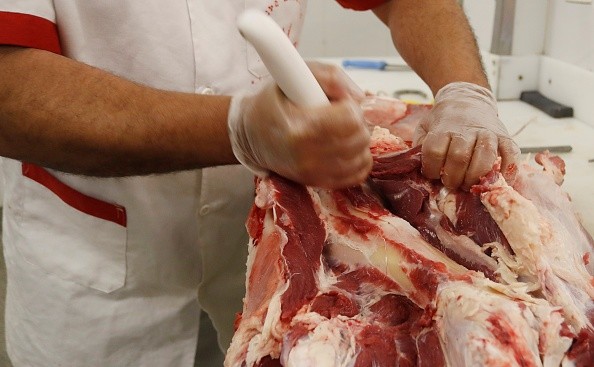China has temporarily suspended beef imports from Brazil following the Brazil beef scandal, according to a notice issued by the country's quarantine authority, Bloomberg reported.
According to Chinese authorities, meat products that are currently at sea or at port will not be able to get clearance from customs.
Zhao Anli, an official of China Meat Association's import and export sub-branch, said that they are still gathering information from each company about beef purchases from Brazil and the potential losses that they may have incurred.
Meanwhile, the Brazilian government is currently conducting investigations into allegations that meat exporters had bribed inspectors to allow tainted beef to be sold or exported as Brazilian President Michel Temel and the country's agriculture minister met with 19 ambassadors of EU, Canada, Sweden and other countries to assure them that Brazilian meat is safe to eat.
Temel later invited the diplomats to dine at a steakhouse to show them that the meat is safe.
"This is an urgent issue since it has repercussions for us internally and abroad," Temer told reporters.
"We spoke with embassies so that they could pass the word onto their governments in regards to any concern from the previous days. I invite everyone to go out to a Brazilian steakhouse now," he added.
Brazilian investigation
An investigation conducted on Friday, March 17, revealed that about 40 meat companies, which include JBS SA and BRF SA, were involved in illegal activities such as bribing inspectors to get the spoiled meat approved for sale and export. The companies also reportedly added chemical substances to conceal the meat's poor quality.
The report said that market shares of JBS and BRF dropped despite denial from the companies and full-page ads in Brazilian newspapers and TV.
Although the Health and Food Safety department of the European Commission said that it found no irregularities with health certificates of meat from Brazil, the EU is seeking additional information about the investigation. China and the U.S. also requested similar information.
After a meeting on Sunday, March 19, Brazil agriculture minister Blairo Maggi said that the investigations also showed that the said practice is not widespread in the industry, and gave assurance that authorities will ensure the highest standard in hygiene and transparency.
"Brazil's industry is robust and strong but it isn't infallible," Maggi said. "We're making sure that what's being produced now is getting the proper inspection."
Meanwhile, Temel said in a statement that only 21 plants out of the more than 4,000 plants in the country were being investigated and that only 33 out of the total 11,000 employees are questioned.
Last year, about one-third of the $5.5-billion-worth of beef from Brazil was shipped to China and Hong Kong, which are the biggest exporter of Brazilian meat, according to the meat exporters group Abiec.
The second-largest market in the European Union, with 13 percent of the exports, the group added.
Brazil also considers China and Hong Kong as its biggest market for chicken, while the European Union ranks third, the Brazilian Association of Animal Protein Abpa said.
According to Brazilian police and Federal Revenue agency, some of the tainted meats were sold in the local market to be used for school meals and also to retail chains which included Wal-Mart stores. Some were also exported.



























